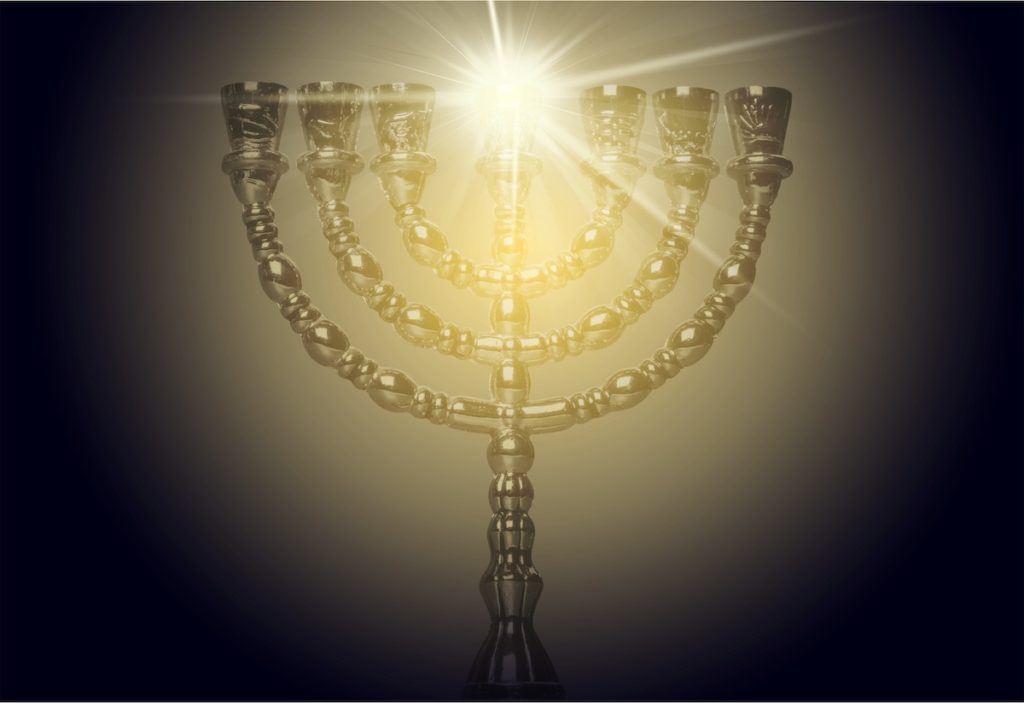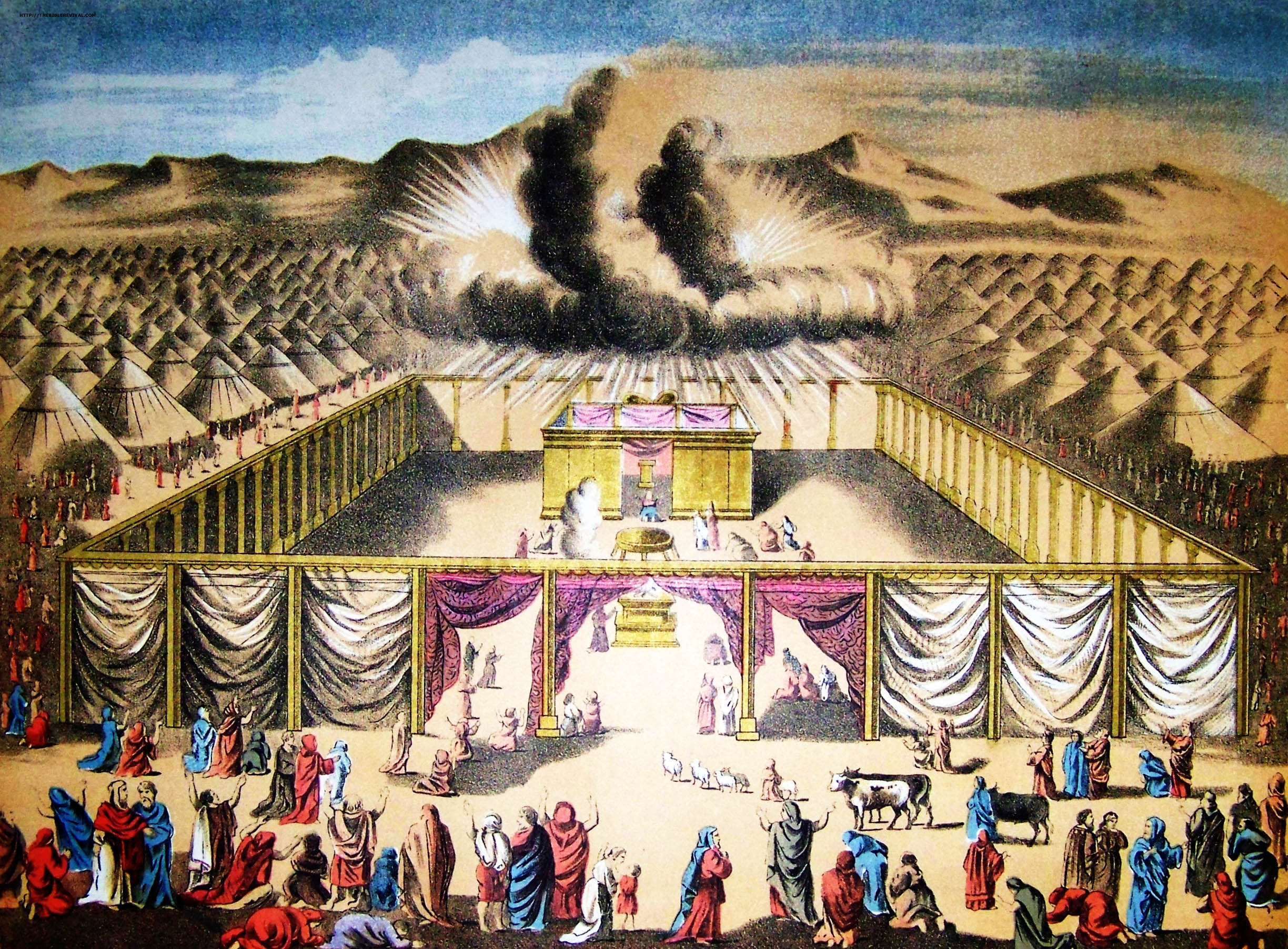
Numbers 8
Numbers 8:2, The menorah. The phrase toward the face of the menorah is an interesting one. The Jewish sages teach that the three wicks on the right and the three on the left were all directed toward the menorah’s central stem, thus concentrating light toward the center. The menorah symbolized that YHVH is the Source of all light (The ArtScroll Stone Edition Chumash, p. 775). What are the connotations of this for a believer in Yeshua? How did Yeshua describe himself? (See John 8:12; 9:5.) Moreover, what did he mean when he said that “I am the vine and you are the branches?” (John 15:5) What does this mean and how is this pointing to a type of human menorah? Now relate this to the seven Messianic assemblies of Revelation 2 and 3 being likened to menorahs (Rev 1:13, 20). Is Yeshua the center of all that we do? Do we place all of our focus on him? Can we say, as the Apostle Paul did, that “in him we live and move and have our being” (Acts 17:28)? Does the power of his resurrected life and anointing flow through you even as oil was in the menorah and sap flows through a tree to its branches?
Redeemed Israelites Are That Menorah

The Scriptures plainly states that Yeshua and his body of followers are likened to a tree of which the seven-branched menorah that adorned the mishkan (tabernacle) in the wilderness as well as the sanctuary of Solomon’s Temple is a picture. Furthermore, remember what Yeshua said in John 15:5? “I am the vine and you are the branches …” This is a perfect picture of the menorah, which has a central trunk with six (the number representing man) branches growing out of the trunk. Remember what Yeshua said in Matthew 5:14–15, that his followers were to be lights upon a lampstand on a hill for all the world to see—a clear allusion in the mind of anyone in Yeshua’s audience to the temple’s menorah (which was upon the Temple Mount like a light on a hill).
Additionally, when a redeemed believer in and follower of Yeshua is in a sacred state of worshipping his Master and Savior, he will often lift his arms heavenward. Not only is this the universal sign of surrender (in this case to one’s Heavenly Master), but when we lift our hands our bodies are actually forming a human menorah. By doing this, in worship we are acting out what we are—a lampstand to the world radiating forth the good news of the truth and love of Yeshua.
In fact, The Scriptures shows us that the menorah, and not the cross, is the symbol of Yeshua’s spiritual body of believers. We see this in Revelation 1:12, 20 and 2:1 where the seven congregations are symbolized as a seven-branched menorah! The menorah here is the symbol of the congregation of redeemed believers.
Though the cross is representative of the redemptive work Yeshua accomplished on our behalf, it is not the symbol of the body of believers, commonly called the “church,” but the menorah is! Furthermore, in Jewish thought, the menorah is analogous to an olive tree (the ancient temple menorah was constructed of hollow tubes of solid gold filled with olive oil that burned when lit), to which the Apostle Paul makes reference in Romans 11, as representing the tree of life (which ultimately represents Yeshua) into which all must be grafted if they are to be part the spiritual body of Yeshua and have his eternal life.
Numbers 8:10, The children of Israel shall lay their hands. By this act, the Israelites were affirming on earth YHVH’s choice of the Levites as the tribe who would minister to him in the tabernacle by assisting those of the Aaronic priesthood. When did YHVH chose the Levites to serve him? (See Exod 32:29, read the preceding verses for context; cp. Num 8:18–19.) Are there examples in the Testimony of Yeshua of the congregation of redeemed Israelites laying hands on individuals who had been chosen to serve YHVH in some special way? (Read Acts 6:1–6; 13:1–3.) What was a key element in the choosing of these spiritual vessels? (Note Acts 6:3; 13:3.)
Numbers 8:24, From twenty-five years old. A young Levite went into a five year training period starting at age 25. How long did this apprenticeship last and when did he begin ministering as full-fledged Levite? (See Num 4:23; , 30,35,39.) Can you recall other biblical examples of YHVH preparing his servants for leadership by passing them through a period of time of spiritual training and refinement? Let’s test your knowledge of Bible trivia how long did Moses, Joshua, Samuel, David, the 12 disciples, and Paul spend in YHVH’s apprenticeship program before being launched into ministry? YHVH’s qualifications for ministry leaders are stringent and are not to be trivialized. The same is true for leaders in the congregation of redeemed Israelites. (Review 1 Tim 3:1–7; Tit 1:5–9.)
Numbers 9
Numbers 9:1–14, The Second Passover. Here we see contrasted those who are not able to keep the Passover, but it is in their heart to do so, while the second group are able to keep the Passover, but don’t want to. To the first group, YHVH is gracious and makes allowances for them through the spirit of the law, while to the second group, the penalty is banishment from Israel.
Continue reading



